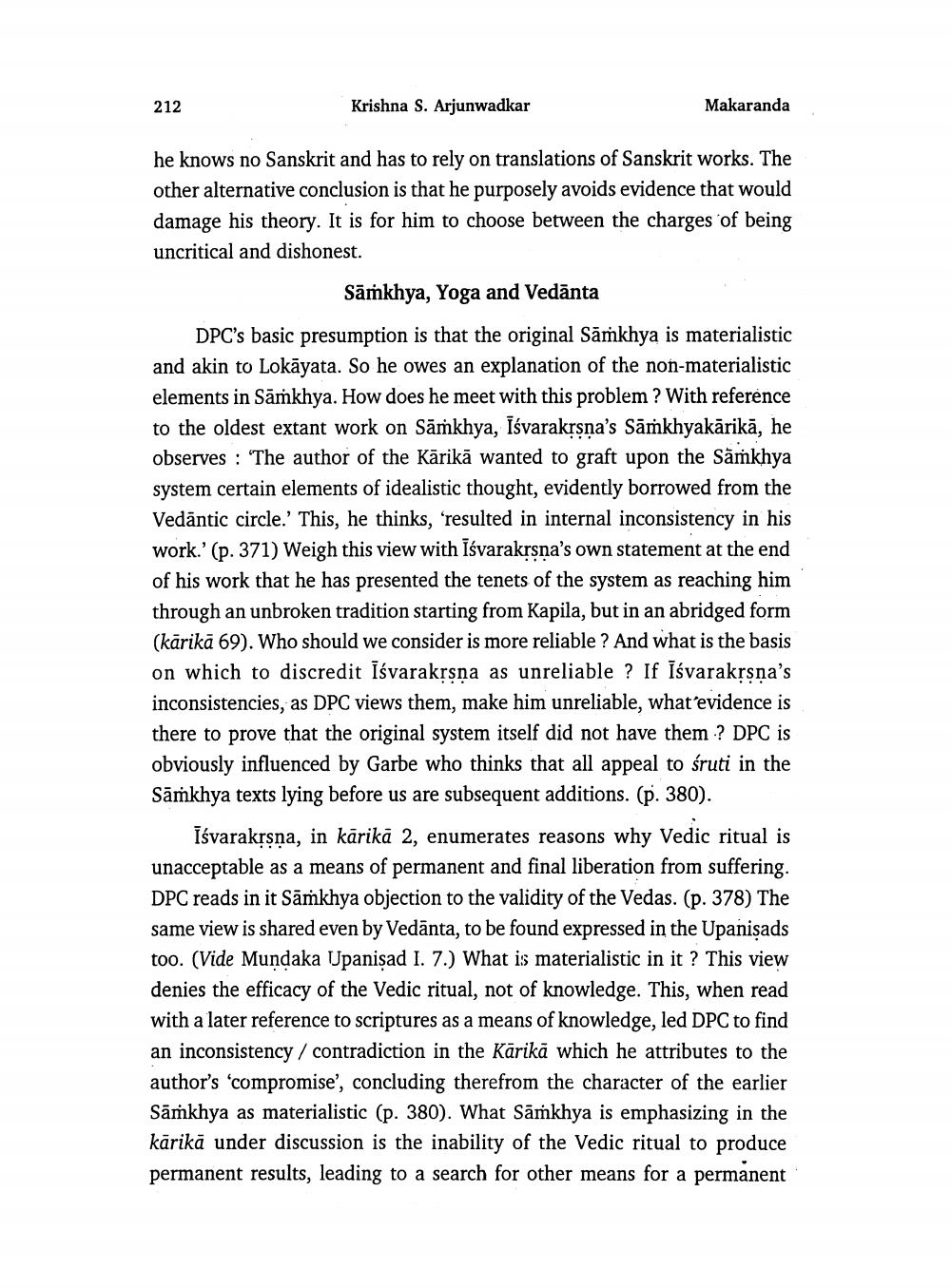________________
212
Krishna S. Arjunwadkar
Makaranda
he knows no Sanskrit and has to rely on translations of Sanskrit works. The other alternative conclusion is that he purposely avoids evidence that would damage his theory. It is for him to choose between the charges of being uncritical and dishonest.
Sāmkhya, Yoga and Vedānta
DPC's basic presumption is that the original Sāṁkhya is materialistic and akin to Lokāyata. So he owes an explanation of the non-materialistic elements in Sāṁkhya. How does he meet with this problem? With reference to the oldest extant work on Sāṁkhya, īśvarakrsna's Sāmkhyakārikā, he observes : The author of the Kārikā wanted to graft upon the Sāmkhya system certain elements of idealistic thought, evidently borrowed from the Vedāntic circle.' This, he thinks, ‘resulted in internal inconsistency in his work.' (p. 371) Weigh this view with īśvarakrsna's own statement at the end of his work that he has presented the tenets of the system as reaching him through an unbroken tradition starting from Kapila, but in an abridged form (kārikā 69). Who should we consider is more reliable? And what is the basis on which to discredit īśvarakrsna as unreliable ? If īśvarakrsna's inconsistencies, as DPC views them, make him unreliable, what'evidence is there to prove that the original system itself did not have them ? DPC is obviously influenced by Garbe who thinks that all appeal to śruti in the Sāṁkhya texts lying before us are subsequent additions. (p. 380).
īśvarakrsna, in kārikā 2, enumerates reasons why Vedic ritual is unacceptable as a means of permanent and final liberation from suffering. DPC reads in it Sāṁkhya objection to the validity of the Vedas. (p. 378) The same view is shared even by Vedānta, to be found expressed in the Upanişads too. (Vide Mundaka Upanişad I. 7.) What is materialistic in it ? This view denies the efficacy of the Vedic ritual, not of knowledge. This, when read with a later reference to scriptures as a means of knowledge, led DPC to find an inconsistency / contradiction in the Karikā which he attributes to the author's 'compromise', concluding therefrom the character of the earlier Sāṁkhya as materialistic (p. 380). What Sāṁkhya is emphasizing in the kārikā under discussion is the inability of the Vedic ritual to produce permanent results, leading to a search for other means for a permanent




